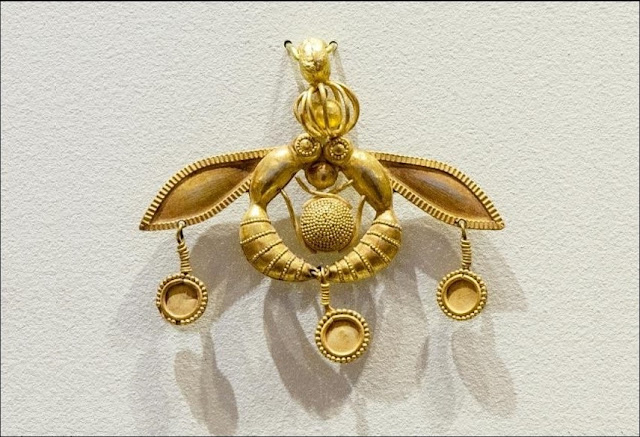By the early 1970s he'd certainly tapped into the exposure and financial rewards that had been out of reach of the poet and novelist, but such success came at considerable personal cost - deadlines, demands, disorientation, so much so that by 1971 (or it might have been 1972), he was describing himself as "a broken-down nightingale". When I read that statement in one of his biographies, I knew what my Keats-inspired narrative poem was going to be about: a reimagining of that night in the middle of an exacting and crazed European tour when lugubrious Lenny (or Captain Mandrax as he was known) nearly went over the edge into the abyss.
 |
| A clockwork Nightingale |
I'm not a big fan of the constraints of versification and metre, but this is one instance in which I felt obliged to adhere to the structures of rhyme-scheme (ababcdecde ) and iambic pentamers (with a trimeter inserted at each eighth line) as employed by Keats in his original Ode To A Nightingale. I have also, for obvious reasons, changed the narrative perspective from first person and set a limit of five on the number of stanzas, as compared to the original eight. I'm happy I've done the form justice. It's for you to judge the merit of the content and its overall effect. Here we go then, on the wings of Poesy...
Ode To A Broken Down NightingaleYour throat aches and a numbness dulls your hand,
So though the plaudits ring around the hall,
You dose on mandrax washed with wine and stand
Your ground, refuse to take the curtain call.
Though some might envy you your role tonight,
Another foreign town with plush hotel,
A line of girls who queue to share your bed,
None of this feels quite right.
The goddess Fame span a beguiling spell
But you have come to view her hold with dread.
Now far away and almost quite forgot,
That simpler time upon a Grecian isle
When life was sweet and Poesy was your lot
With Marianne your Nordic muse, whose smile
Unlocked the spice-box for you, and who placed
A fresh gardenia on your desk each day,
All distractions kept at bay except one;
Warm evenings when you graced
The harbour cafes, happy just to play
And sing for those bohemian friends - all gone.
In Berlin or in Rome your body fits
To simulate the lover and the seer
Whose words have filled some million bedsits,
Whose intimate confessions forced a tear
In corners where your lonely listeners dwell.
They paid their pound and now they want the flesh.
Our recording angel's testimony
States you fake the part well,
Can rail like a bird that's caught in a mesh,
Such anguish revealed, nothing sounds phoney.
And yet the mirror doesn't lie. Dark pools
Reflect a deeper truth, the death of hope
As, burdened by the weight of trusting fools,
You fantasize of reaching for the rope.
One knot, one drop might free you from this trap,
To fly into the dark beyond at last
With weary mechanism jettisoned.
Is this the final lap?
Your dress-rehearsal rag audition passed?
The executioner stares, reticent.
Lore of your fathers makes you turn away,
Pull on the famous raincoat, collar up,
And slip discreetly the post-concert fray
Through damp September streets, your bitter cup
Brimming with furious pity for yourself
And for a world gone wrong, where every song
Beats wings against the urgings of your heart,
Each show erodes your health.
You make the choice once more not to belong,
Outsider, now your future may restart.
Just for those of you who don't know the back story, Cohen could easily have died an early death, like Keats, but he decided to walk away from the scene, to escape from what he called "captivity in the tower of song" and he joined an order of Buddhist monks. Only decades later, when he discovered that his manager had swindled him out of his funds, did he make a belated return to the circus of the music world, to pay for his retirement years. In his sixties and seventies he wrote, recorded and played concerts once more, to great acclaim, only this time on his own terms and not anybody else's. Respect to the man.
Thanks for reading. Tonight will be fine.....for a while. S ;-)















